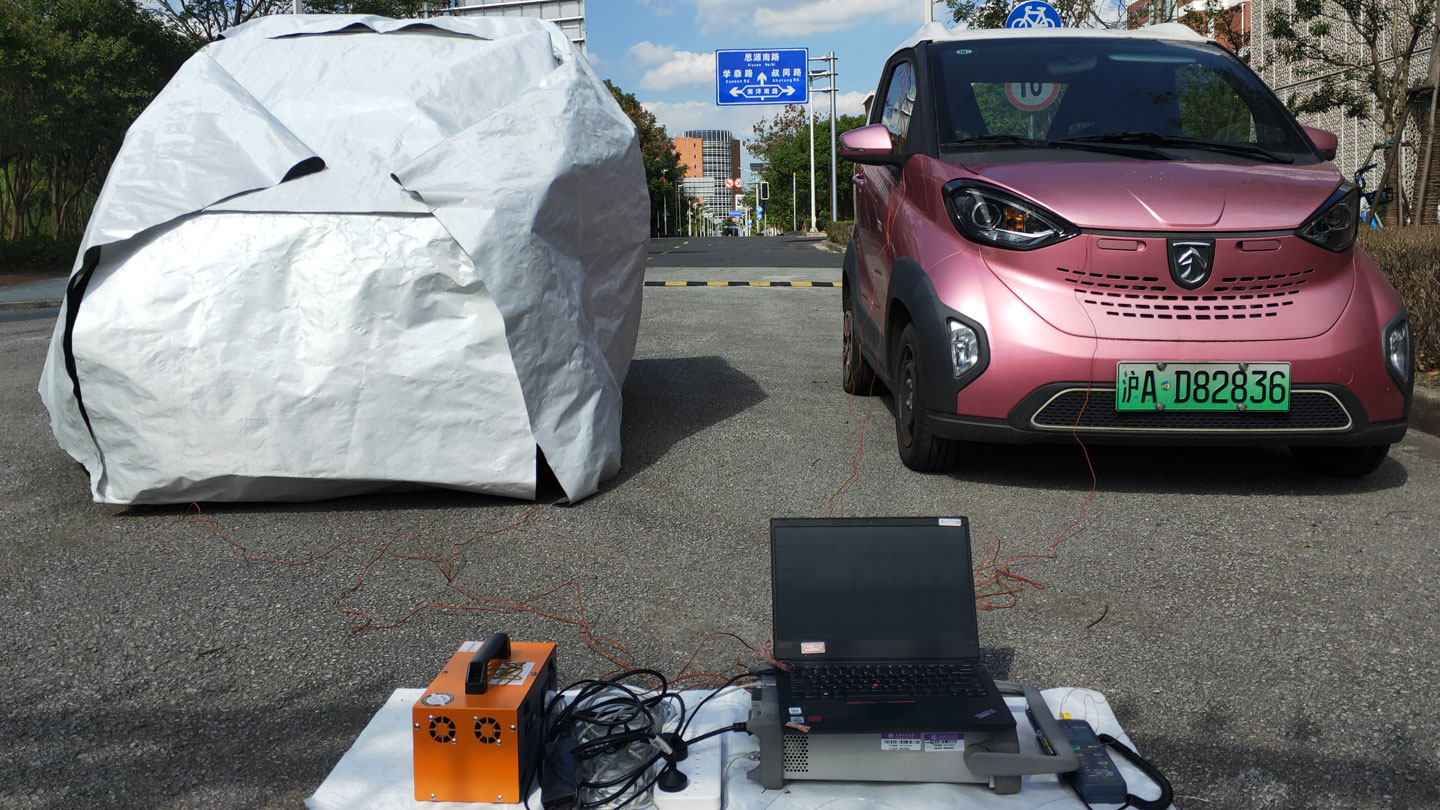If you’ve ever burned your hands on a car steering wheel, you know how hot the inside of a car can get on a summer day. But a new fabric could one day help cars and other objects stay cool in the summer and warm in the winter.
Globally, heating and cooling make up 38 percent of energy use in buildings and 12 percent of total energy consumption. Materials like this thermal cloak could help keep us comfortable during heat waves while reducing carbon dioxide emissions associated with electricity used in temperature control, says Aaswath Raman, an applied physicist at UCLA who was not involved in the study.
In the new study, Kehang Cui, an engineer at Shanghai Jiao Tong University, and colleagues built the cloak using two layers. The outer layer is made of white silica fibers that reflect visible light, coated with hexagonal boron nitride, a ceramic material that reflects ultraviolet light and helps dissipate heat. Together, the silica fibers and boron nitride reflect 96 percent of the sunlight that hits the fabric. At the same time, the outer layer absorbs heat from the surrounding area and emits that energy as infrared light, which also lowers the temperature under the cloak through a process called radiative cooling.
Though the outer layer keeps the space under the cloak cooler for longer than an uncovered area, the cloaked space slowly warms up throughout the day. The inner layer, made of aluminum foil, keeps the space warm at night by trapping some of that heat inside, similar to an insulating survival blanket.
2023-07-11 10:00:00
Source from www.sciencenews.org





















